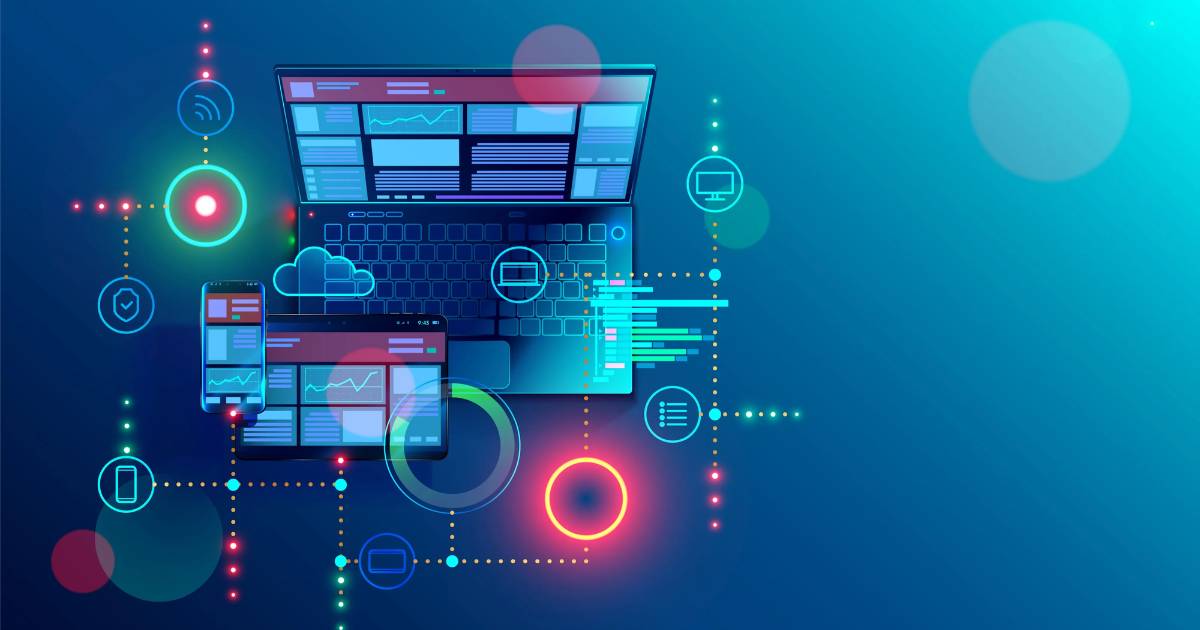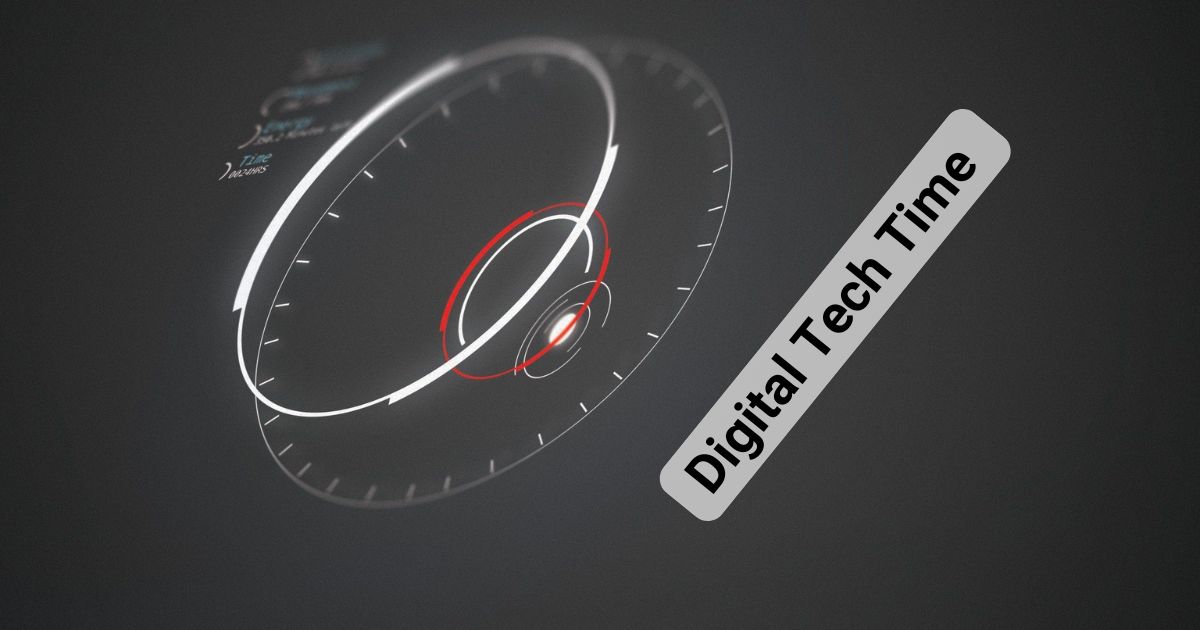Digital tech time refers to the period we spend interacting with digital technologies in our daily lives. It encompasses our use of computers, smartphones, tablets, and other digital devices. This concept also includes the time we dedicate to online activities, social media, and various digital platforms.
Imagine a world where your entire life fits in your pocket. Your work, entertainment, and social connections are all accessible through a single device. This isn’t science fiction; it’s the reality we live in today.
Our relationship with technology is complex and ever-evolving. From the early days of personal computers to the current era of smartphones and artificial intelligence, digital tech has reshaped our society. It offers incredible benefits, but also presents new challenges. As we continue to navigate this digital landscape, it’s essential to explore how technology impacts our time, productivity, and well-being.
The Evolution of Digital Technology
From Mainframes to Smartphones
The journey of digital technology is nothing short of remarkable. It all began with room-sized mainframe computers, behemoths that could perform basic calculations. Fast forward to today, and we carry devices in our pockets with computing power that would’ve been unimaginable just a few decades ago. This rapid evolution has transformed how we work, play, and interact with the world around us.
The personal computing revolution of the 1980s brought technology into our homes, but it was the rise of the internet that truly changed the game. Suddenly, we had access to a world of information at our fingertips. The advent of smartphones took this a step further, making the digital world accessible anytime, anywhere. This constant connectivity has redefined our relationship with technology and reshaped our concept of time management.
Key Milestones in Digital Tech Time
Let’s take a moment to appreciate some of the pivotal moments in the history of digital technology:
- 1971: The invention of the microprocessor
- 1989: The birth of the World Wide Web
- 2004: The launch of Facebook, ushering in the era of social media
- 2007: The introduction of the iPhone, revolutionizing mobile computing
- 2010s: The rise of cloud computing and the Internet of Things (IoT)
Each of these milestones has contributed to the digital landscape we navigate today, influencing our tech habits and the way we interact with the world.
Impact on Communication
Revolutionizing How We Connect
Digital technology impact on communication has been profound. Remember the days of waiting by the phone for an important call? Now, we’re always just a tap away from instant connection. Video calls allow us to see loved ones across the globe in real-time, while social media platforms have created global communities around shared interests.
However, this always-on connectivity is a double-edged sword. While it’s easier than ever to stay in touch, the pressure to be constantly available can be overwhelming. This is where setting boundaries becomes crucial. It’s important to carve out tech-free time to maintain real-world connections and prevent digital burnout.
Don’t Miss Out
Digital Tech Time in Business Communication
In the business world, digital technology has revolutionized how we collaborate and serve customers. Remote work, once a rarity, has become commonplace thanks to virtual collaboration tools. Customer service has evolved from phone calls to multi-channel support including email, chat, and social media.
Looking ahead, technologies like augmented reality (AR) and virtual reality (VR) promise to take communication to new heights. Imagine attending a meeting where participants from around the world feel like they’re in the same room, or providing customer support through immersive AR experiences. The future of communication is exciting, but it also calls for thoughtful consideration of how we manage our digital tech time.
The Negative Effects of Excessive Digital Tech Time
Health Concerns in the Digital Age
While technology has brought numerous benefits, excessive screen time can take a toll on our health. Here’s a quick look at some common issues:
| Health Concern | Symptoms | Potential Causes |
| Digital Eye Strain | Dry eyes, blurred vision | Prolonged screen use |
| Sleep Disruption | Insomnia, daytime fatigue | Blue light exposure before bed |
| Neck and Back Pain | Muscle tension, headaches | Poor posture while using devices |
| Mental Health Issues | Anxiety, depression | Excessive social media use |
These health concerns underscore the importance of mindful tech use and the need for effective screen time management.
Balancing Act: Finding Digital Wellness
Achieving digital wellness doesn’t mean completely unplugging. Instead, it’s about finding a balance that allows us to enjoy the benefits of technology without letting it control our lives. Here are some strategies for managing digital tech time:
- Set specific times for checking emails and social media
- Use productivity tools to block distracting websites during work hours
- Practice the Pomodoro technique – work for 25 minutes, then take a 5-minute break
- Create tech-free zones in your home, like the dining table or bedroom
- Engage in regular digital detoxes – try a weekend without social media
Remember, the goal is to be the master of your technology, not its slave. By implementing these effective time management strategies, you can regain control over your digital life and boost your overall well-being.
Digital Tech Time in the Workplace
Productivity in the Digital Era
The digital revolution has transformed the workplace, bringing both opportunities and challenges. Productivity tools like project management software, collaborative platforms, and automation have streamlined many tasks, allowing us to accomplish more in less time. However, the constant influx of emails, messages, and notifications can also be a major distraction.
The key to managing tasks effectively in this digital age is to harness the power of technology while maintaining focus. Here’s a case study that illustrates this point:
Case Study: Tech Company XYZ XYZ implemented a policy of ‘No Meeting Wednesdays’ and encouraged the use of asynchronous communication tools. They also provided training on effective time management strategies. The result? A 30% increase in employee productivity and a 25% reduction in reported stress levels.
Upskilling for the Digital Future
As technology continues to evolve, so too must our skills. Digital literacy is no longer optional – it’s a necessity across all sectors. From coding to data analysis, the demand for tech-savvy professionals is on the rise. Fortunately, the digital age has also democratized learning, with countless online platforms offering courses on everything from basic computer skills to advanced AI programming.
Investing in your digital skills isn’t just about staying employable. It’s about empowering yourself to navigate and shape the digital world around you. As the saying goes, “The best way to predict the future is to create it.”
The Future of Digital Tech Time

Emerging Technologies Shaping Our World
As we look to the future, emerging technologies promise to further revolutionize our relationship with digital tech time. 5G networks will enable faster, more reliable connections, potentially changing how and where we work. Quantum computing could solve complex problems in seconds that would take traditional computers years. And advancements in biotechnology might even see digital interfaces merging with our biology.
These developments are exciting, but they also raise important questions about privacy, ethics, and the nature of human interaction. As we embrace these new technologies, we must also critically examine their impact on our lives and society as a whole.
Ethical Considerations in the Digital Age
With great power comes great responsibility, and nowhere is this more true than in the realm of digital technology. As we move forward, we must grapple with issues like data privacy, the digital divide, and the ethical development of AI.
“The advance of technology is based on making it fit in so that you don’t really even notice it, so it’s part of everyday life.” – Bill Gates
This quote highlights the importance of developing technology that enhances our lives without dominating them. As we continue to innovate, we must strive to create a digital future that is inclusive, respectful of privacy, and conducive to human flourishing.
Conclusion
Digital tech time has become an inextricable part of modern life. By understanding its evolution, impact, and potential future directions, we can make informed decisions about how we integrate technology into our lives. Remember, technology is a tool – it’s up to us to use it wisely and ensure it serves our needs rather than the other way around. So, take control of your digital tech time, set healthy boundaries, and embrace the incredible possibilities that technology offers while maintaining a balanced, fulfilling life.


